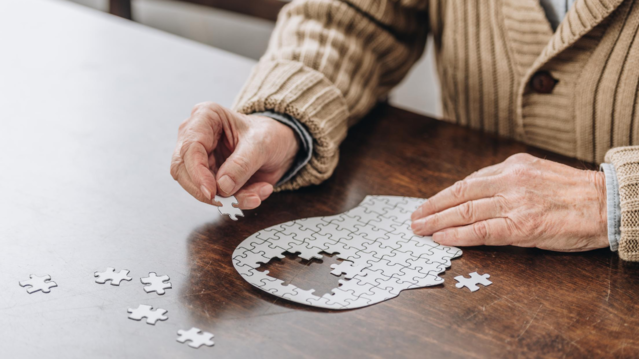Dementia
Why Is Early Diagnosis of Dementia Important?
Early diagnosis of Alzheimer's or dementia can pave the road to better care.
Posted July 27, 2020

Witnessing memory problems in your older loved one can be really scary. You might not know what's causing the memory loss and fear the worst-case scenario. You may think, "If it is dementia, there’s nothing I can do about it, right?" Wrong!
On the other hand, you might notice signs of memory loss in your loved one and brush it off, thinking, “Everyone experiences significant memory loss as they age, right?” Wrong!
I've seen many individuals and families put off getting an evaluation to identify what’s causing memory loss for the reasons above and so many other reasons as well. But putting off an evaluation to determine what is causing memory loss can be more harmful than helpful.
In this post, I set the record straight about the benefits of early detection of dementia disorders. There's actually a lot that we can do to make your life and your loved one’s life with dementia easier—and early detection is key.
Here are seven benefits of early diagnosis of dementia:
1. Provides an explanation for changes in the brain
Early detection provides an explanation for what may be causing the memory loss and puts unease to rest. Without an explanation of what's going on, you're left wondering and struggling. Getting an evaluation of memory loss and gaining clarity about if your loved one has a dementia disorder or not actually gives an explanation for the signs and symptoms that they're experiencing.
2. Allows the person with dementia to make decisions early on about what they want their future to look like
Early detection of a dementia disorder allows the person with dementia to make decisions early on about what they want their future to look like. The timing makes it more likely that the person living with dementia will be able to participate in financial and legal decisions, and to express their wishes for their future while they still have the capacity to do so. It provides a runway for having important family conversations that you may not be able to have down the road.
3. Better access to medical and mental health care
Early detection increases the likelihood that your loved one will have better access to medical and mental health care. Sadly, there is no cure for dementia at this time, but there are some medications that can help slow down the progress of dementia. And they're most effective when started early in the illness. And yes, dementia is an illness. It's not a normal part of aging. It's not a typical thing that happens in the brain. It's an illness. And so if you can start a medication early in the process, it can slow down how quickly that illness moves, thereby improving the quality of life for the person living with dementia.
4. Better survival rates
Early detection of a dementia disorder has been shown to not only improve quality of life, but increases the chance that that person with dementia will live longer. So not only will they have a better quality of life, they're going to have a better quality of life for longer.
5. Lower rates of institutionalization later in the illness process
Research shows a 20% lower rate of living in a memory care unit or a nursing home when there is early detection of a dementia disorder. Naturally, this has tremendous financial and emotional benefits for everyone involved.
6. Gives the person with dementia and family members time to adjust and come to terms with the diagnosis
Early detection gives the person with dementia and family members time to adjust and come to terms with the diagnosis and all the care needs. When I first started working with older adults, I was naive about dementia disorders. I quickly learned that it is one of the most painful conditions to care for. There’s a tremendous amount of ambiguous loss. You lose your loved one bit by bit. It's devastating. The earlier the diagnosis in the illness process, the more likely family members are to adjust and come to terms with the illness and the loss. Early detection allows you to take one step at a time into the caregiver role, rather than jumping headfirst into the deep end.
7. Reduces the risk of the caregiver developing anxiety and depression
Early detection of dementia disorders reduces the risk of you, the caregiver, developing anxiety and depression. Research shows that dementia caregivers experience the highest rates of anxiety and depression. Early diagnosis helps to reduce that risk. So the earlier your loved one gets diagnosed, the more time it gives you to adapt. And when you're better able to adapt, the more competent you’ll become in providing care... and you're going to be less likely to experience psychological problems, like anxiety and depression, in both the short run and the long run.
BONUS Benefit: Helps you to understand the caregiving landscape and prepare resources
There’s a bonus benefit to early detection. It’ll help you to understand the caregiving landscape and all of the resources that you're going to need to provide care for your loved one with dementia. Resources like Adult Day programs, Medicare/Medicaid, memory care, continuous care retirement communities. It's a whole new world when it comes to dementia caregiving. Early identification in the dementia process gives you time to learn about that world and gives you time to gather information and gather resources ahead of when you'll need them, so that you'll be more prepared.
As you can see, there are many reasons to pursue early detection of a dementia disorder. If your loved one is demonstrating or exhibiting memory problems, please take this seriously.
You can help by encouraging your loved one to make an appointment with their primary care provider. The primary care provider will evaluate if what your loved one is experiencing is something that may be corrected or managed, like a vitamin B-12 deficiency or sleep problems, or pointing in the direction of a dementia disorder and recommend specialists to help with specialized evaluation of dementia.
References
Rasmussen, J. & Langerman, H. (2019). Alzheimers Disease. Why we need early diagnosis. Degener Neurol Neuromuscul Dis. 2019; 9: 123–130.




